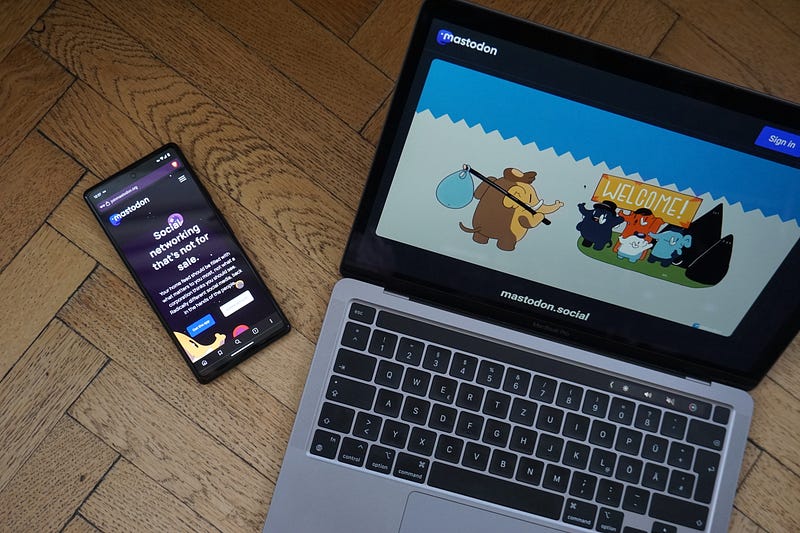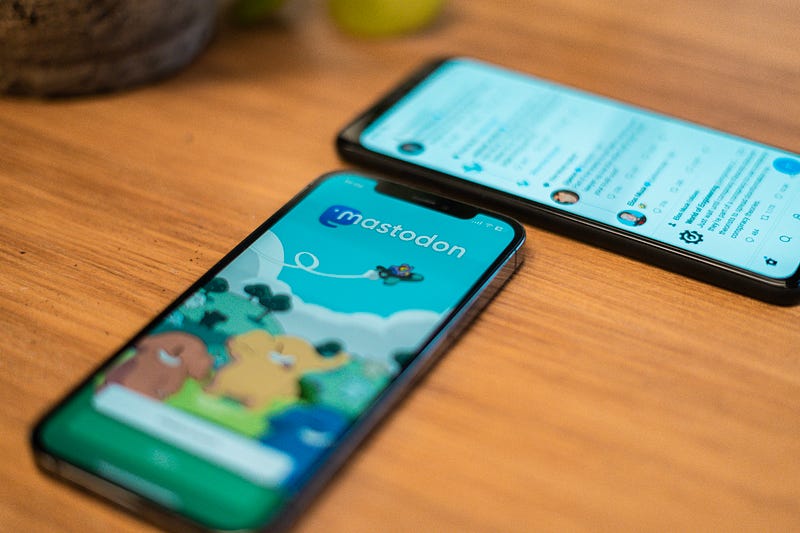Social media has become an integral part of our daily lives, allowing us to connect with friends and family, discover new interests, and share our thoughts and experiences with the world.
However, the centralized structure of popular social media networks like Facebook and Twitter has led to concerns around data privacy, censorship, and algorithmic bias.
In response to these issues, a new type of social media network has emerged: federated social media, with Mastodon leading the way.
What is Mastodon?
Mastodon is a decentralized, community-driven social media network that allows users to connect with each other through instances.
Instances are servers run by users, rather than a single company, and users can choose which instance they want to join based on their interests and values. This federated structure means that Mastodon is not controlled by a single entity, and we, the users, have more control over our online experiences.
How Does Mastodon Work?
Mastodon is similar to Twitter in many ways. It allows users to post short messages and follow other users’ accounts.
Mastodon’s federated structure means that users can interact with users on other instances, expanding their reach beyond just their instance. You can also decide to create your own instance, giving you complete control over an online community.

Advantages of Mastodon
One of the main advantages of Mastodon’s federated structure is that it allows for more diversity and inclusivity. Since users can create their own instances, they can tailor their community to their specific interests and values, creating a space where everyone feels welcome.
This stands in contrast to traditional social media networks, which can often be dominated by a single culture or demographic.
Another benefit of Mastodon is its focus on community-driven development. Unlike traditional social media networks, which are controlled by a single company, Mastodon is open source, meaning anyone can contribute to its development.
This allows for a more democratic approach to social media, where users have a say in how the network is built and maintained.
Drawbacks of Mastodon
However, there are also challenges associated with Mastodon’s federated structure. Since each instance is run independently, there is no central governing body, which can lead to issues around moderation and content regulation. No one has a good answer for that yet.
Additionally, Mastodon’s smaller user base means that it may be more difficult to find communities that align with your interests.
Then there is the signup process. Traditionally, when you sign up for a new social media service, you pick a username and password, and then you can jump in, post, and find people to follow.
With Mastodon, you also have to pick a server to join. It doesn’t really matter which one you pick (Medium has one if you are interested) but this can be a confusing step for new users who are trying to orientate themselves with a new platform.

Are There Other Apps Like Mastodon?
Another exciting development in the world of federated social media is Bluesky, a project led by Twitter co-founder Jack Dorsey. Like Mastodon, Bluesky aims to create a decentralized social media network that is not controlled by a single company.
However, Bluesky is still in the early stages of development, and it remains to be seen how much it will differ from Mastodon and other federated social media networks. It is also invite-only until it launches publicly, so joining Bluesky is a waiting game for most people.
Regardless, the fact that major players in the tech industry are exploring decentralized social media as an alternative to traditional networks is a promising sign for the future of online communication.
Conclusion
Whether you choose to use Mastodon, Bluesky, or another federated social media network, the important thing is that you take control of your online experience and find a community that aligns with your interests and values. That’s where sites like Twitter have failed users, and why federated social media could be the future we never knew we needed.



